The gut is one of the most important systems in a horse's body, responsible for processing nutrients, supporting immune function, and maintaining overall health. Thoroughbreds, like all horses, have a digestive system that is designed to process fibrous forage like grass throughout the day. However, the modern Thoroughbred's lifestyle—often characterized by stabling, high-energy grain-based diets, and intense training—can upset the natural balance of their gut.
Gut health issues can manifest in a variety of ways, from poor performance and weight loss to more severe conditions like colic or gastric ulcers. These issues not only compromise a horse's physical condition but can also lead to behavioral problems such as irritability, anxiety, or reluctance to work. Therefore, maintaining a healthy gut is essential for ensuring that Thoroughbreds can perform at their peak and remain comfortable, happy athletes.
Common Gut-Related Problems in Thoroughbreds
Several gut-related issues are frequently observed in Thoroughbreds due to their sensitive digestive systems and the demands placed on them. These problems can range from mild discomfort to serious health concerns that require immediate attention.
Gastric Ulcers
Perhaps the most well-known gut issue in Thoroughbreds is gastric ulcers. According to Jeune et al. (2009), racehorses have the highest prevalence of gastric ulceration (60–100%), which is not surprising as this disease process is associated with horses used for competitive sport that are in intensive training. Due to their high-strung nature and the stress of training and competition, Thoroughbreds are highly susceptible to ulcers in the stomach lining. Feeding practices also play a role—horses that are stabled for long periods and fed large, infrequent grain meals are more likely to develop ulcers because their stomachs produce acid continuously. Without constant grazing or forage to neutralize the acid, the stomach lining can become irritated and ulcerated. Ulcers can lead to discomfort, weight loss, decreased appetite, and performance problems.
Colic
Colic is a broad term for abdominal pain, and Thoroughbreds, like all horses, are at risk. While any horse can suffer from colic, Thoroughbreds are more susceptible due to their diet, high-performance lifestyle, and sensitive digestive systems. Colic can range from mild gas colic to severe and life-threatening impactions or twists. The high-starch diets common in Thoroughbred feeding can overwhelm the digestive system, particularly the hindgut, where it ferments and produces gas, increasing the risk of gas colic. Poor hydration and changes in routine can also increase the risk of colic in Thoroughbreds.
Hindgut Acidosis
Hindgut acidosis is a condition in which the pH level of the hindgut drops, making it more acidic than normal. This is often a result of feeding high-grain diets or rapidly fermenting starches, which are common in Thoroughbred nutrition to meet their energy needs. When large amounts of undigested starch reach the hindgut, they ferment rapidly, producing lactic acid and causing the gut environment to become too acidic. This can disrupt the delicate microbial balance, leading to digestive upset, gas, bloating, and discomfort. In severe cases, it can even lead to laminitis, a painful condition affecting the hooves.
Leaky Gut Syndrome
Another gut issue that affects Thoroughbreds is leaky gut syndrome, where the intestinal lining becomes more permeable than it should be, allowing harmful toxins and undigested food particles to enter the bloodstream. This can lead to inflammation throughout the body, causing a range of issues from digestive problems to poor performance and weakened immunity. Leaky gut is often linked to stress, high-starch diets, and the use of non-steroidal anti-inflammatory drugs (NSAIDs), which are sometimes used to manage pain and inflammation in performance horses.
Dysbiosis (Imbalance of Gut Microflora)
A healthy gut relies on a delicate balance of beneficial bacteria, which help in the digestion of fibrous material and the absorption of nutrients. Dysbiosis, or an imbalance in this gut microflora, can lead to digestive inefficiency, gas buildup, and discomfort. This imbalance is often caused by stress, dietary changes, or the overuse of medications like antibiotics, which can kill off good bacteria along with the bad. Thoroughbreds are particularly susceptible due to the stress of competition and frequent dietary shifts.
Management Strategies for Supporting Gut Health in Thoroughbreds
Maintaining gut health in Thoroughbreds is essential for ensuring peak performance and preventing common digestive problems. Here are some key management practices that can help:
Frequent, Small Meals
Instead of feeding large meals of grain or high-starch concentrates, which can overload the digestive system, Thoroughbreds should be fed smaller, more frequent meals. This mimics their natural grazing behavior and helps to keep the digestive system working smoothly without overwhelming it. Including high-quality forage in the diet, such as hay or pasture, is essential for maintaining healthy gut function.
Adequate Forage
Thoroughbreds thrive on fiber, which is necessary to keep the gut moving and prevent issues like ulcers and colic. Ensuring that horses have access to high-quality forage, such as alfalfa or grass hay, throughout the day is crucial. For horses prone to ulcers, alfalfa hay is particularly beneficial because it contains higher levels of calcium, which can help buffer stomach acid.
Managing Stress
Stress is a major contributor to gut health problems in Thoroughbreds. The demands of competition, transportation, and frequent changes in environment can all take a toll on the gut. Ensuring that horses have enough downtime, access to turnout, and consistent routines can help reduce stress levels. Behavioral enrichment and social interaction with other horses can also improve mental well-being and, by extension, gut health.
Digestive Supplements
Digestive supplements like EquiNectar® can play an essential role in supporting gut health in Thoroughbreds. EquiNectar® is an all-natural digestive syrup made from malted barley, designed to promote healthy digestion and reduce the risk of gut-related problems. The syrup contains active digestive enzymes that help break down feed more efficiently, reducing the load on the hindgut and minimizing the risk of conditions like hindgut acidosis.
How EquiNectar® Supports Gut Health in Thoroughbreds
EquiNectar® is a powerful tool for maintaining optimal gut health in Thoroughbreds, especially those prone to digestive issues. Its active digestive enzymes help break down feed, reducing the amount of undigested starch that reaches the hindgut. This is critical for preventing issues like hindgut acidosis, which can occur when high-starch diets overwhelm the digestive system. By breaking down starches more efficiently, EquiNectar® lightens the load on the digestive tract, reducing the risk of gas colic, bloating, and discomfort.
Additionally, EquiNectar® promotes the growth of beneficial bacteria in the gut, supporting a healthy microbial balance. A healthy gut flora is crucial for efficient digestion and nutrient absorption, and EquiNectar®'s enzyme-rich formula helps maintain this balance even under the stress of intense training and high-energy diets. The product also optimizes hindgut function, which can contribute to more consistent droppings and a reduction in digestive upset.
EquiNectar® is rich in B vitamins, particularly niacin and folate, which support energy metabolism and cellular repair, further enhancing the overall health of Thoroughbreds. Its pleasant taste encourages even picky eaters to finish their feed, ensuring that horses get the nutrition they need without leaving behind unpalatable meals. By incorporating EquiNectar® into a Thoroughbred's daily diet, owners can help mitigate the risks of common gut-related issues and ensure their horse is healthy, happy, and ready to perform.
Conclusion
Gut health is a crucial component of overall well-being and performance in Thoroughbreds. These high-performance horses are more susceptible to gut issues like gastric ulcers, colic, hindgut acidosis, and dysbiosis due to their sensitive digestive systems and demanding lifestyles. Proper feeding practices, stress management, and the use of digestive supplements like EquiNectar® can help reduce the risk of these problems.
EquiNectar®, with its natural malted barley formulation and active digestive enzymes, supports healthy digestion, promotes gut flora balance, and optimizes hindgut function. As part of a comprehensive management plan, EquiNectar® can help Thoroughbreds maintain a healthy digestive system, ensuring they remain in peak condition and free from gut-related discomfort. By prioritizing gut health, owners can not only enhance their horse's comfort and well-being but also boost their performance in the competitive arena.
References
- Jeune, S., Nieto, J., Dechant, J., & Snyder, J. (2009). Prevalence of gastric ulcers in Thoroughbred broodmares in pasture: A preliminary report. The Veterinary Journal, 181(1), 251-255.
- Moore, J. (2021). Overview of Colic in Horses. MSD Veterinary Manual.
- Colombino, E., Raspa, F., Perotti, M., Bergero, D., Vervuert, I., Valle, E., & Capucchio, M. T. (2022). Gut health of horses: effects of high fibre vs high starch diet on histological and morphometrical parameters. BMC veterinary research, 18(1), 338.
- Glasgow Equine Hospital & Practice. (n.d.). Reducing the risk of colic.
- Liversidge, B. (2024). Hindgut Acidosis in Horses – Signs, Causes & How to Prevent. MB Mad Barn.
- Kentucky Equine Research. (2024). Leaky Gut Syndrome in Horses.
- Kentucky Equine Research. (2021). Small, Frequent Meals Increase Nutrient Digestibility in Horses.
- Godfrey, H. (2024). How to Feed an Ulcer-Prone Horses.


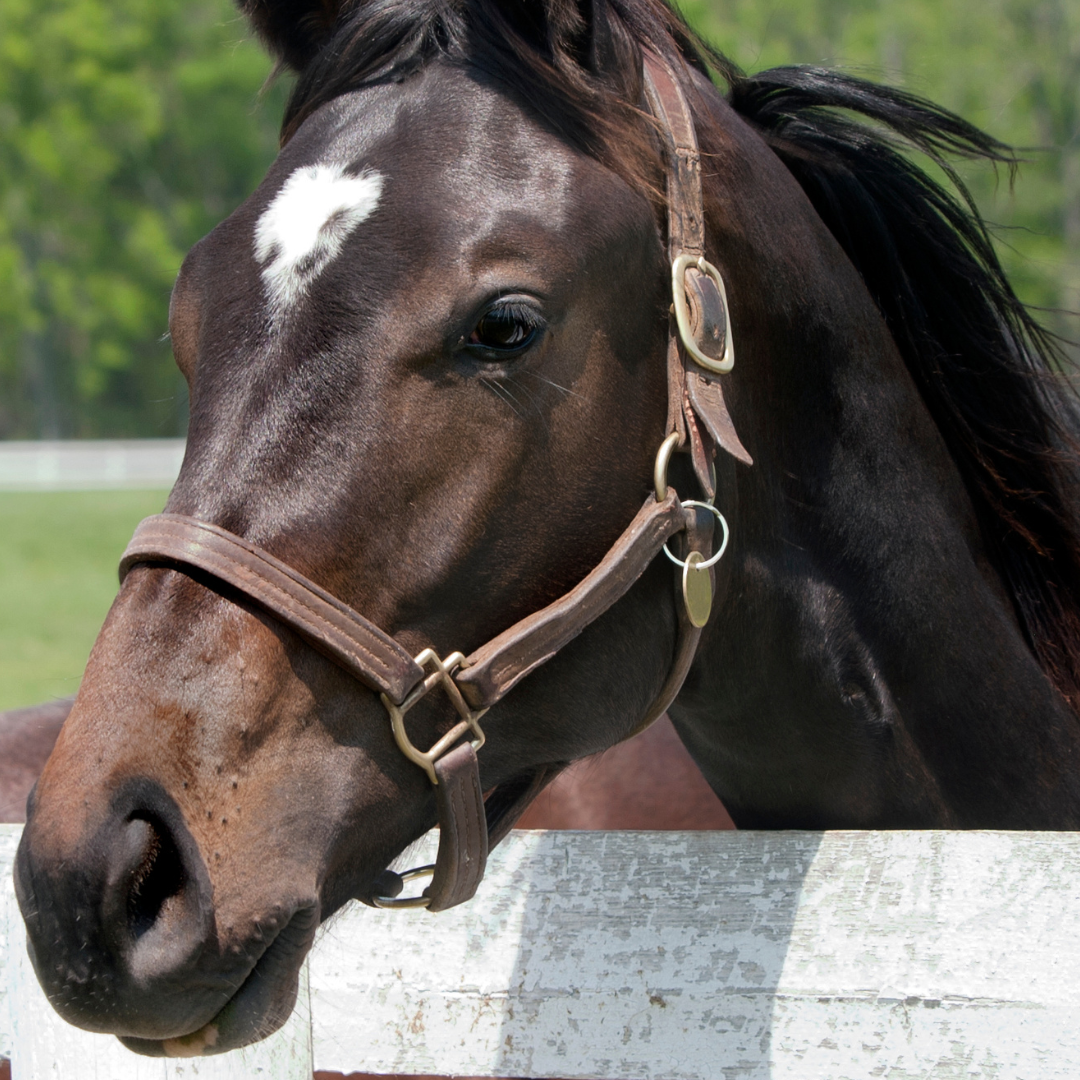
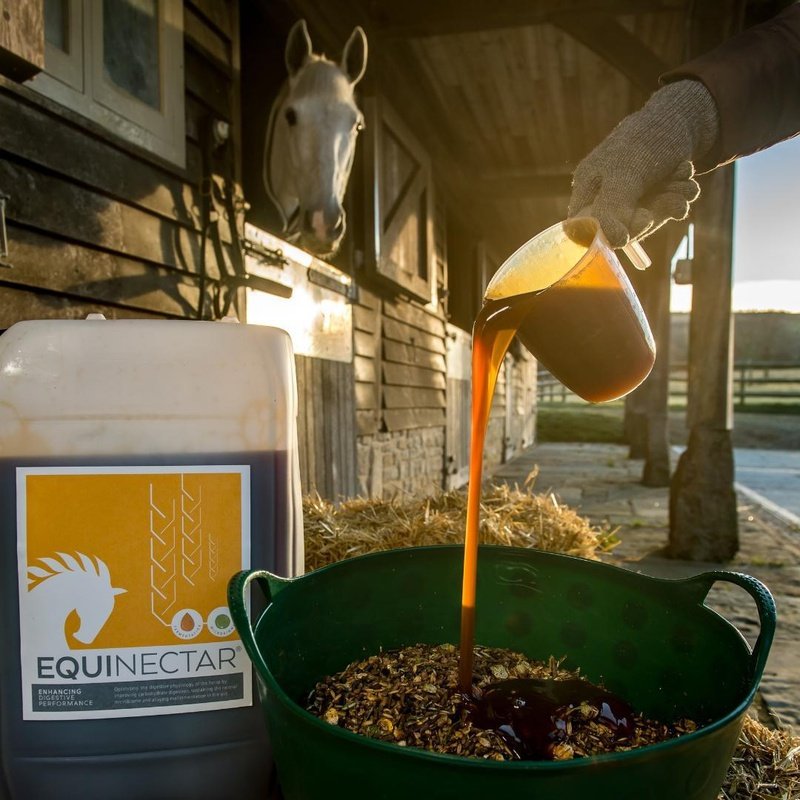
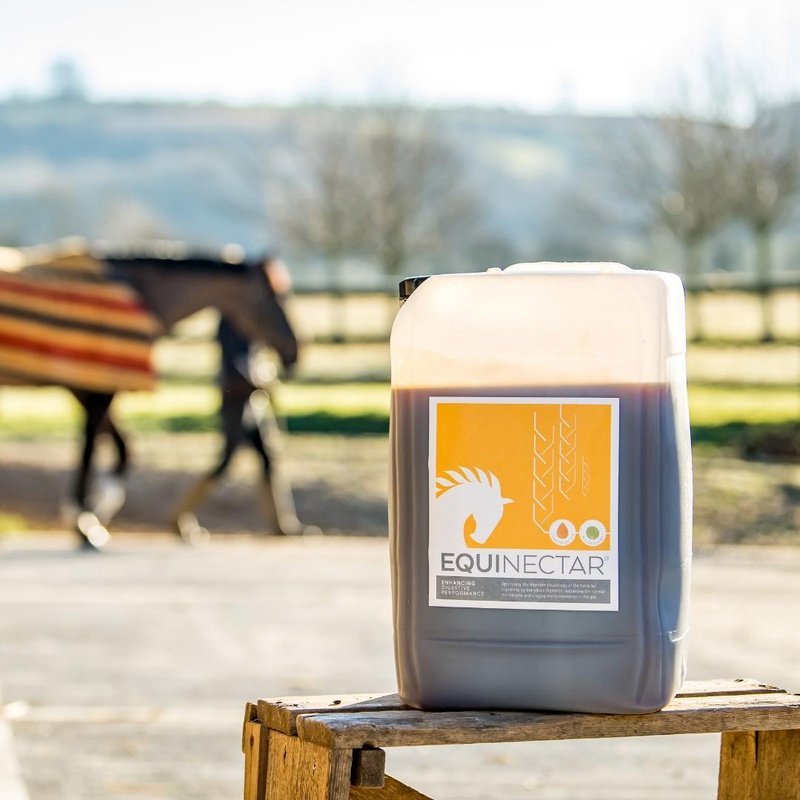
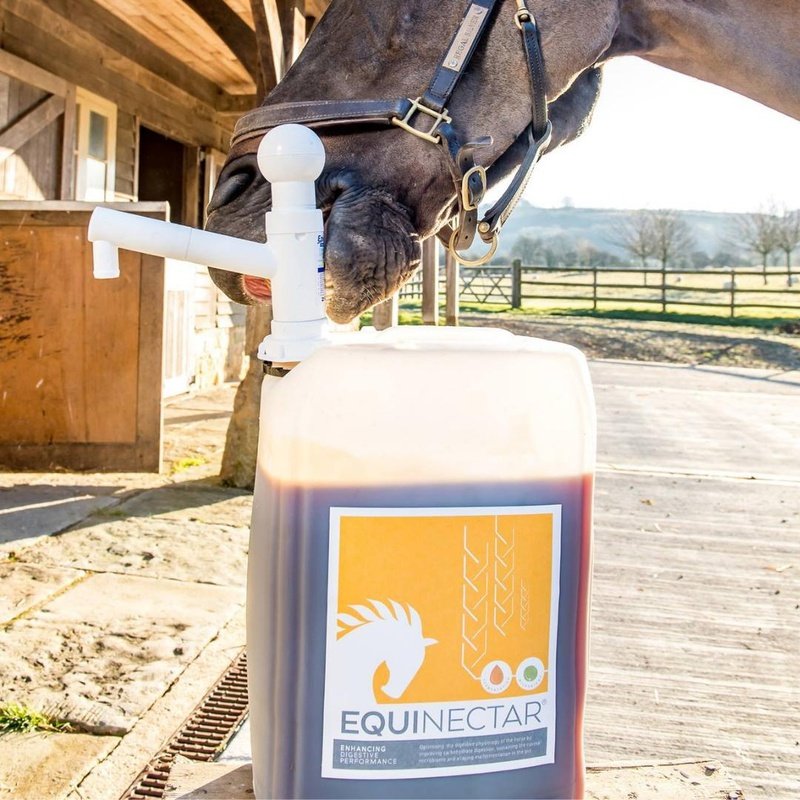
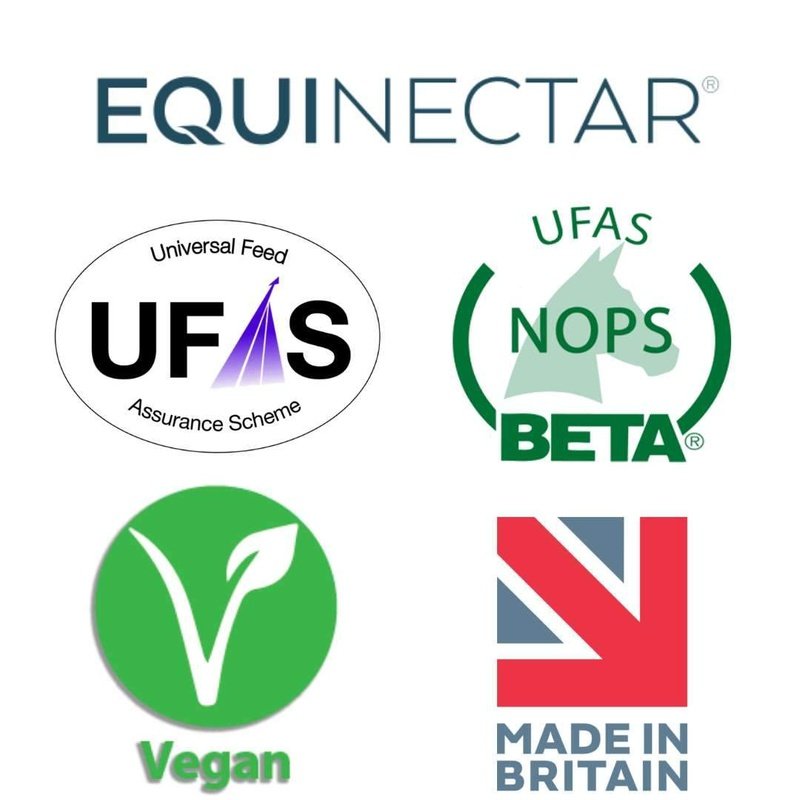
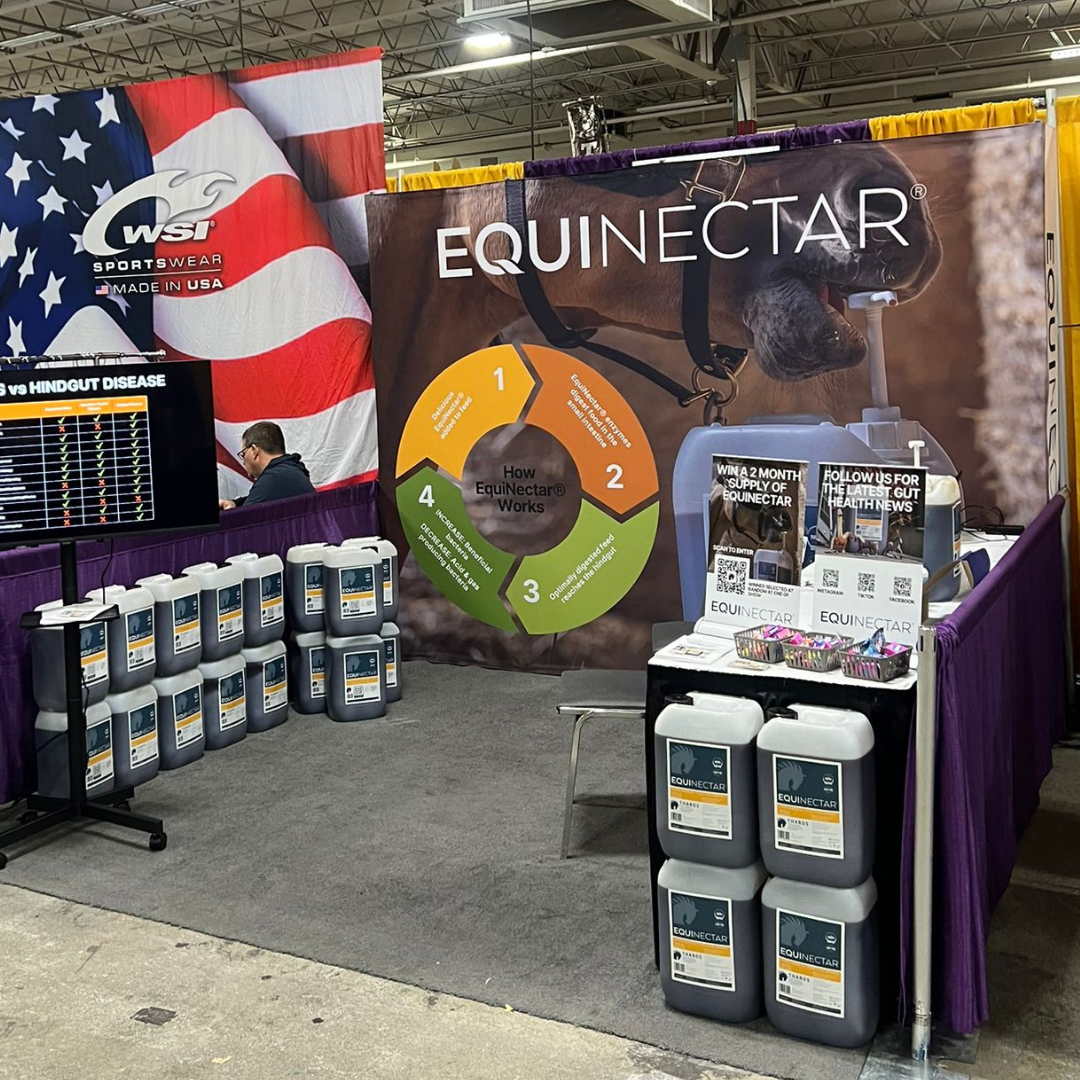

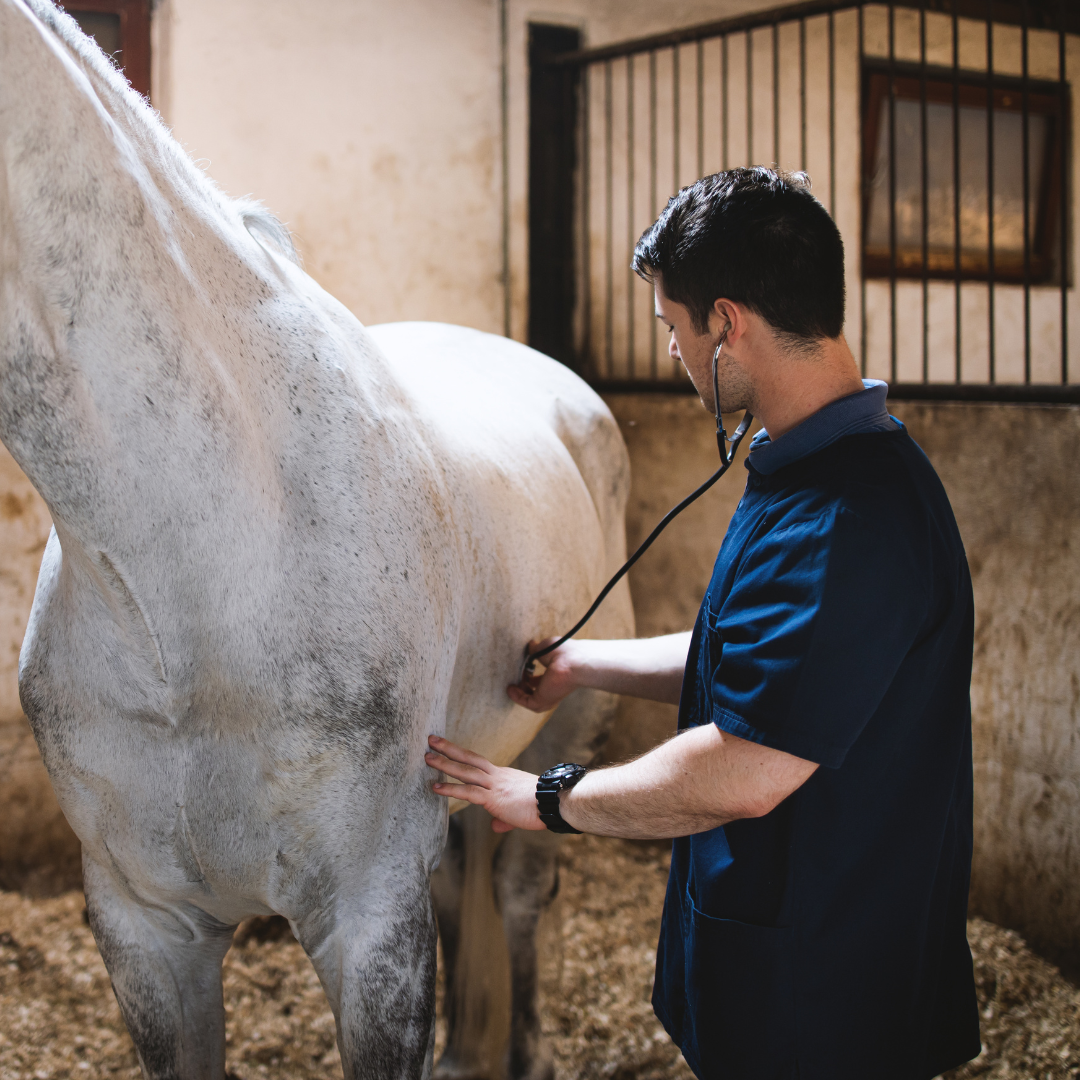
Share: